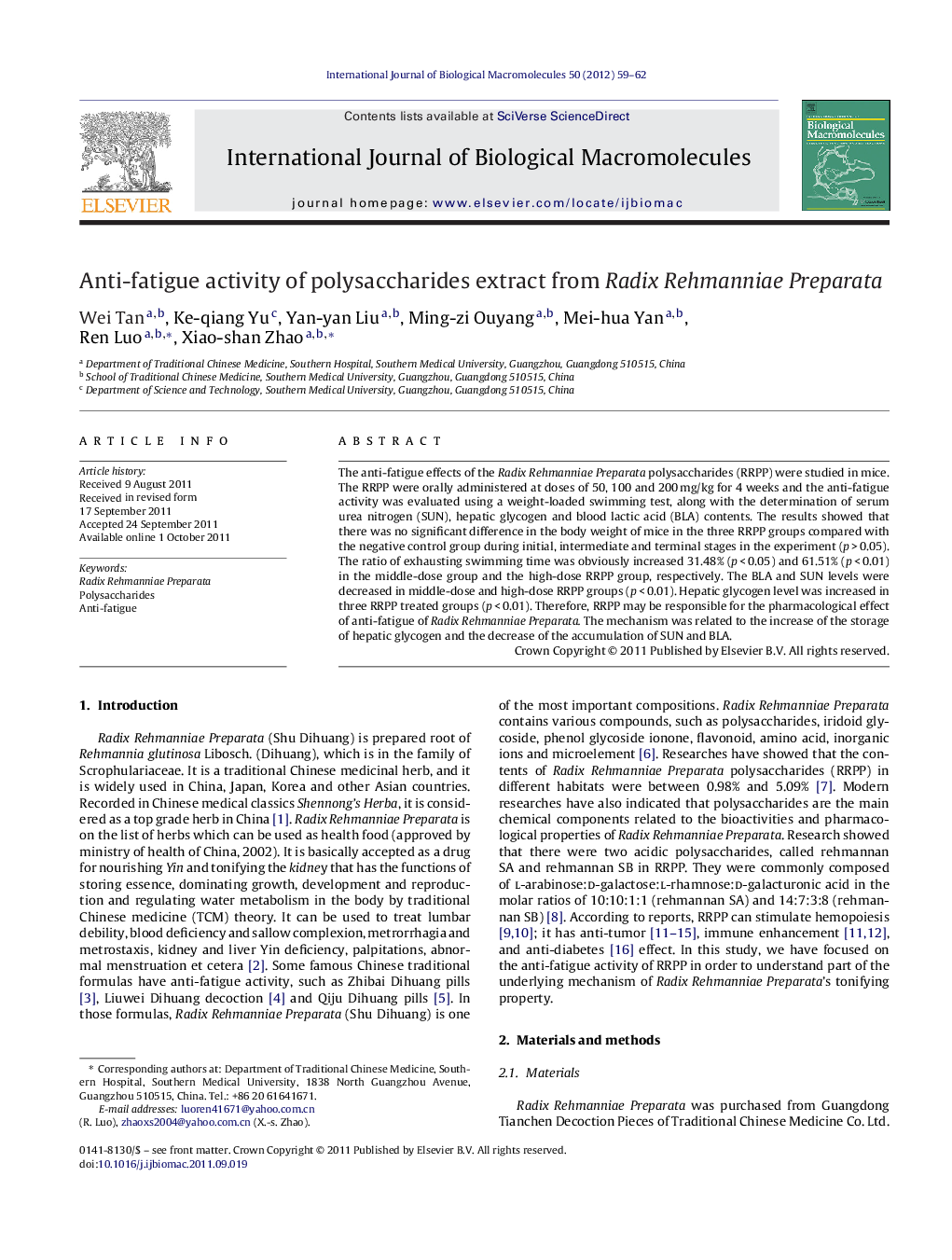| Article ID | Journal | Published Year | Pages | File Type |
|---|---|---|---|---|
| 8335078 | International Journal of Biological Macromolecules | 2012 | 4 Pages |
Abstract
The anti-fatigue effects of the Radix Rehmanniae Preparata polysaccharides (RRPP) were studied in mice. The RRPP were orally administered at doses of 50, 100 and 200 mg/kg for 4 weeks and the anti-fatigue activity was evaluated using a weight-loaded swimming test, along with the determination of serum urea nitrogen (SUN), hepatic glycogen and blood lactic acid (BLA) contents. The results showed that there was no significant difference in the body weight of mice in the three RRPP groups compared with the negative control group during initial, intermediate and terminal stages in the experiment (p > 0.05). The ratio of exhausting swimming time was obviously increased 31.48% (p < 0.05) and 61.51% (p < 0.01) in the middle-dose group and the high-dose RRPP group, respectively. The BLA and SUN levels were decreased in middle-dose and high-dose RRPP groups (p < 0.01). Hepatic glycogen level was increased in three RRPP treated groups (p < 0.01). Therefore, RRPP may be responsible for the pharmacological effect of anti-fatigue of Radix Rehmanniae Preparata. The mechanism was related to the increase of the storage of hepatic glycogen and the decrease of the accumulation of SUN and BLA.
Keywords
Related Topics
Life Sciences
Biochemistry, Genetics and Molecular Biology
Biochemistry
Authors
Wei Tan, Ke-qiang Yu, Yan-yan Liu, Ming-zi Ouyang, Mei-hua Yan, Ren Luo, Xiao-shan Zhao,
